AudioCulture
The noisy library of New Zealand music
Te pātaka korihi o ngā puoro o Aotearoa
Renee-Louise Carafice
“I see her in the same vein of musical genius as David Mitchell (The 3Ds) and Ed Cake (Bressa Creeting Cake), with songs that reach deep inside you in a way you just don’t quite understand; it’s like they’ve always been there inside you and only now someone is pointing them out. You didn’t realise they’d been missing from your life, but it’s as if someone has just told you that you need air to survive, or that the ocean exists.”
King was one of many who experienced something akin to an epiphany on hearing Renee-Louise Carafice: Tells You To Fight! I was close to completing my book 100 Essential New Zealand Albums at the time of its release, and knew immediately that I would have to include it. Here, I wrote, was an album “as poetic as it is candid, comforting as it is chilling, and musically stunning”.
Intensifying the response to the album was the fact that, to most people, it came completely out of the blue. I hadn’t even heard the artist’s name before the disc landed on my desk. But it came with a compelling backstory. On her 22nd birthday Renee-Louise Carafice had been institutionalised with severe depression. It was during the period that followed that she wrote most of the songs on the album. Remarkably, what emerged from such a dark time was a thing of great beauty.
Renee-Louise had grown up in what she describes as “immense physical and emotional pain”. Born in bush-clad Titirangi to a Zen Buddhist father and a free-spirited hippie mother, she was, in her words, “a very sickly child from day one, always suffering from bad illnesses and almost dying from them a few times. In some of my baby photos I have black eyes from coughing so hard I burst blood vessels.”
But she always had music. She was singing before she could talk. “I would sing everything I thought, which must have been infuriating for people around me. My first actual instrument was ukulele when I was seven. I learned all these George Formby classics that I would perform for visitors when Mum wanted me to ‘play everybody a song.’”
“I once asked my stepdad, ‘What does getting high mean?’ He brilliantly explained it to me as, ‘You know when you put on your headphones on and close your eyes and listen to David Bowie? That is getting high.’”
Afraid to leave the house and timid of other people, she couldn’t face school so spent “every day for 16 years just listening to music” and teaching herself musical instruments.
For me, the making of music was something totally private ... hidden like a treasure.”
“I was very secretive, so my parents didn’t even fully realise my musical capabilities until much later. For me, the making of music was something totally private, done away from other people, hidden like a treasure no one else was allowed to know about but me.”
Alone in her bedroom, she would channel her melancholy into songs and record onto cassette tapes, adding layer upon layer “until they were these huge-sounding, complex pieces.”
By her mid-teens she had tentatively begun to venture into the outside world. She briefly joined an Andean traditional band as a guitarist, and after years as a correspondence student, attended Onehunga High School, where she performed her songs for other students.
Ben King was playing guitar in Goldenhorse, who were preparing to record their first album, when he first heard Renee-Louise at an open mic afternoon at The Kings Arms in Newton, Auckland. “Her songs were so unusual to me,” he remembers. “I was totally captivated. She used a structure and chords that I couldn’t decipher, despite every song sounding perfectly natural and with a kind of magical evocative quality.”
He invited her up to the bush studio in Waiatarua where Goldenhorse was recording. There she played her songs to members of the band and recording engineer Nick Abbott, who has “a distinct memory of her sitting cross-legged, in that strange way that she does, playing songs on her guitar against the backdrop of all of Auckland from high up in the Waitākere ranges.”
“I was floored from the very first note,” he says. “I had a very strong feeling I was hearing something like a Dylan or a Nick Drake type of unique talent. It had those familiar elements, but the delivery and lyrical content was something I had never heard before. The sound coming out of the guitar was also very strange.”
King and Abbott would play essential roles in the making of Renee-Louise Carafice Tells You To Fight!, but several years would elapse before it came to fruition. In the meantime, Renee-Louise continued to have her own struggles. On her 22nd birthday she was admitted to Te Whetu Tawera, Auckland’s acute mental health unit, suffering from severe depression. It was while she was there that the songs on her debut album began to take shape. With titles such as ‘Asylum Escape Song’ and ‘Song For A Cruel German Psychiatrist Woman’, many of them relate directly and explicitly to her hospital experience.
After her release, she continued to work on the songs, eventually playing them to Ben King and Nick Abbott, who encouraged her to record them as live demos. But to make the album would take a little longer. It would also take money.
She remembers: “I sat down with Nick one day and said 'how much do we need to make an album of these songs ... a really perfect album?’ We came up with the figure of $25,000.”
Renee-Louise set about applying for funding and won a Nescafé Big Break Award: an annual grant for Australasians between the ages of 16 and 24 to “kickstart their dream”, whether it be in technology, sport, fashion, agriculture, or the arts. Her prize was $25,000, exactly the amount she had budgeted to make her record.
Nick Abbott suggested that they record at Steve Albini’s Electrical Audio studio in Chicago.
It was Nick Abbott’s suggestion that they record at Steve Albini’s Electrical Audio studio in Chicago. For over a decade all of his favourite records had been made there. He had spent a week in Chicago on his way to England in 2003, and Albini had given him a tour of his facility.
“As an engineer who recorded live bands most of the time it was a near perfect recording environment and if you use the studio without Albini as your engineer it’s really cheap. Like, a bargain.
“Apart from that, Electrical is one of the best studios in the world. The adobe [mud brick] rooms sound like nothing else. The microphones and tape machines are the best you could ever want. From a technical sense making a record there was the easiest thing I’ve ever done.
“Also, late in 2003 I had made a record at another residential studio in Norway, Athletic Sound, and really saw the benefits of that environment. When you’re all living in the studio, you’re all very focused and waste no time travelling in the morning. So, when Renee and I were talking about making her record and it was clear neither her nor I wanted to record in New Zealand and she didn’t want to come to England, I suggested Electrical. It totally fit within her budget, you could stay in rooms at the studio, and it was the US. It was an obvious choice.”
Ben King brought his electric guitar skills as well as the musical arrangements he and Renee-Louise had worked on in the months leading up to the trip. Nick enlisted the Chicago-based rhythm section of drummer Angel Ledezma and bassist Matt Lux.
King recalls Electric as “an incredible place ... an old world studio, all analog tape. It’s a huge industrial building and the room hasn’t been changed much. It has a giant sound, with a long soft reverberation. We were left to our devices, allowed to use any mics, guitars, amps, etc. It was a welcoming place, but without any interruption.”
During her time at Electric, Renee-Louise established a close relationship with Steve Albini’s cat. One night, after the studio staff had all gone home, the phone rang. Renee-Louise answered and took a message. It was Joanna Newsom, calling to ask Albini to record what would become her breakthrough album, Ys.
Though the New Zealanders had booked the studio for 10 days, their method proved more efficient than expected. Renee-Louise recorded her guitar and vocals live, never recording more than three takes of any song, while mixing the whole album took just a single day, so recording was completed within something like half the allotted time. To Nick Abbott’s amazement, Electrical refunded the balance.
Though the album was finished in 2005, it wasn’t released until 2008 due to holdups with local indie label Monkey Records, much to Renee-Louise’s frustration. In the meantime, she had found the experience of being in Chicago such a positive one that she decided to stay. Neither King nor Abbott were all that surprised. “She was pretty miserable in New Zealand, as far as I could see,” says Ben King. “The US was all possibility for her.”
Renee-Louise had lived in Jamestown, New York, for a period as a child and held a US passport, but at the time of the Chicago trip she hadn’t been back to the States in almost a decade. “After a couple of days in Chicago I realised it was a special place, where I felt better – I moved better, breathed better, felt happier. So, I started telling the others, ‘I’m going to stay here, I’m never going back.’ They thought I was joking at first, but then realised, okay she’s really going to just live here.”
Carafice realised that Chicago was “a special place, where I felt better – I moved better, breathed better, felt happier.”
By the time Tells You To Fight! was released, Renee-Louise was well on the way to making her second album, 2010’s I Will Raise A Bird Army. This time her chief collaborator was American musician Jamie Stewart, best known as frontman for boundary-pushing rock group Xiu Xiu. Much of the album was created at Stewart’s home studio where, as she says, “We just kind of hid away from the world and geeked out together.”
While there is some of Renee-Louise’s distinctive acoustic guitar and dobro, and Ben King returns to provide touches of bass, Colombian tiple and electric sitar, the bulk of the songs rely on a new palette, centred on Renee-Louise’s piano and augmented with various percussive and electronic sounds. The result is different from the earlier album, yet just as striking in its own way.
The songs, too, reflect a new phase of Renee-Louise’s life, though not an entirely settled one. Her time in Chicago included spells with no money, hanging out with junkies and occasionally eating out of dumpsters, while a relationship breakup sits at the record’s heart. There are creative metaphors for a failed romance (“The car door has fallen off / there are plastic bags for windows”) and frank contemplations of violence (“I will raise a bird army who’ll peck you to pieces”), and yet the overall mood is defiant; even, at times, funny.
As she insisted to RNZ’s Kirsten Johnstone during a New Zealand visit in 2011, soon after the album’s release, “There’s just a sadness in my voice and the stuff that comes out of my mind and it’s not going to go away. But at the same time, I’m a really cheerful and quite light-hearted person. Simple-minded, even. I’m not a particularly dark person at all. But that’s how my songs come out.”
Not one to repeat herself, Renee-Louise’s third album introduced an entirely different set of colours. Power Animals (2014) is a raucous, clattery affair. Carafice’s voice crackles as though she is singing into a telephone (which, for parts of the record, she is). It is full of fizzing synthesisers and sawing guitars, while drum machines beat out bright rhythms of the kind you might expect to hear in a gym.
“Each of the albums has its own sound as my own personal collection of instruments changes, and is based on what I believe is the best way of putting across what I want to convey,” she says. “Power Animals on a dobro wouldn’t work, just as Tells You To Fight! on synths would probably flop.” She reconsiders: “Actually, that sounds kind of rad.”
Though written in Chicago, in a 10-day flurry following a course of hypnotherapy “for this stuff I’ve been going through for many years, stuff that had built up and had just hit a breaking point,” by the time she came to record Power Animals she had hit the road again and was now living in – of all places – Nashville. The music bears no trace of the country music capital’s famed sound. Her partner in the project was dance producer Daniel Tomczak, a Detroit native who felt as much an alien in Music City as she did. Sequestered in a small office studio, they kept themselves as immune to the outside world as possible while making the album.
As it turns out, it wasn’t music that had drawn her to Music City. It was bicycles. “I’m part of a bike club,” she explained to me in 2014, on a visit to New Zealand to promote the release. “Not a motorcycle club but a bicycle club, where we take trash and make it into bikes and ride them. We have a sister club in Nashville, so I drove down there, went to a party. And then I met a boy and ended up staying.”
In Nashville she trained parakeets – “my bird army” as she called them, referencing the name of the independent label, Bird Army Records, on which she has released all her albums since Fight! But Nashville didn’t feed her creative spirit in the way Chicago had, and before long she had relocated yet again, this time to Las Vegas, where she has now lived for six years in a house full of birds and dogs. She made her latest record Goners there; it was released in New Zealand in late 2019. Again she turned to electronics, sometimes manipulating her voice so its more human characteristics seem to disappear altogether. And yet, the album’s overriding subject is the very human one of grief; specifically, dealing with the loss of several of her beloved pets and contemplating what happens after death.
The overriding subject of ‘Goners’ is grief; specifically, dealing with the loss of several of her beloved pets.
In 2022, she is preparing to re-release Goners to a US market, which will involve a new set of music videos to complement the visually striking clips she has already made for her earlier records.
“It all comes down to my absolute loathing for the 'singer-songwriter’ archetype of a young woman strumming on an acoustic guitar at an open mic night and just making really feeble, one-dimensional music,” she explains. “I like there to be many elements to my art, and having stunning visual stimuli in addition to the music is an important part of that. Music videos allow you to meet the artist in a way that’s beyond what you can get from an audio recording, and I try to put across who I really am in my music videos.”
She is also planning a US tour in 2022, by train. “The live performance I’m working on is set to be really stunning. And I’ve just started stocking up on instruments to start recording demos for my next album, including a cool little three-quarter sized classical guitar, to honour the folk singer in me.”
Though New Zealand remains on her performance circuit, and her recordings will continue to be available here, the US will be her home for the foreseeable future. “It’s easier here for me in every respect,” she says. “I’ve been living in Las Vegas for six years now. I had never seen the desert until I broke down on a road trip across America and stopped in Vegas to get the car repaired. I was immediately struck with the city’s magic – and I don’t mean razzmatazz like you find on the Las Vegas Strip. The geographical location has a vast, ancient spirit to it that feels almost like an honour to be within. It’s a place where everything is amplified, and you can see it with the juxtaposition of millionaires and the huge homeless population. Scam artists flock there from across the country, but so do people who have a strange, unnameable longing to be in the desert, like me. I have met amazing people here who are a lot like me: spiritual seekers, open-hearted individuals.
“I am free of the suffering from my childhood and my young adulthood. I am free to be who I want to be in the world in this crazy place where no one will even notice if you get on the bus wearing a garbage bag as a dress. Not that I do that, but it’s an actual thing that I saw once, and was pretty impressed with. So, because of that freedom I am able to write and create much more beautiful work.”
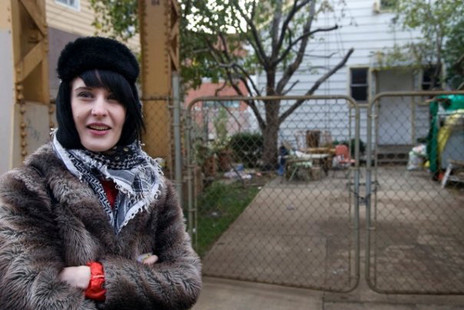
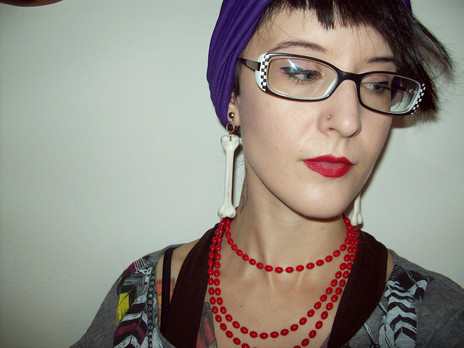
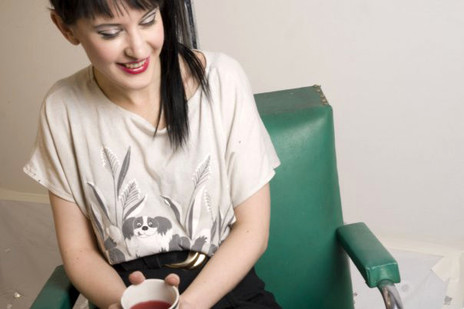
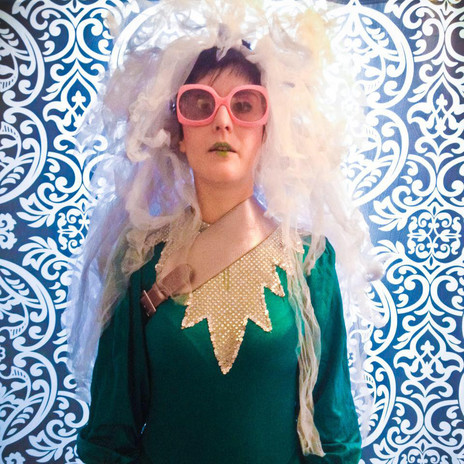
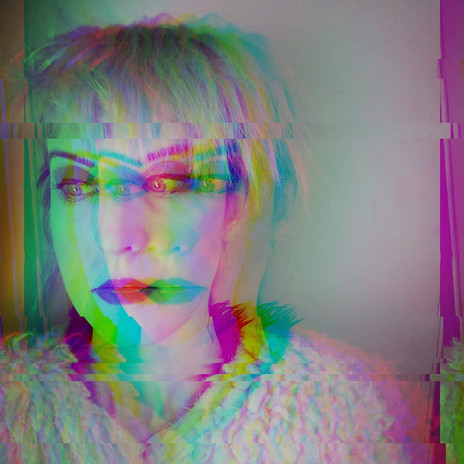
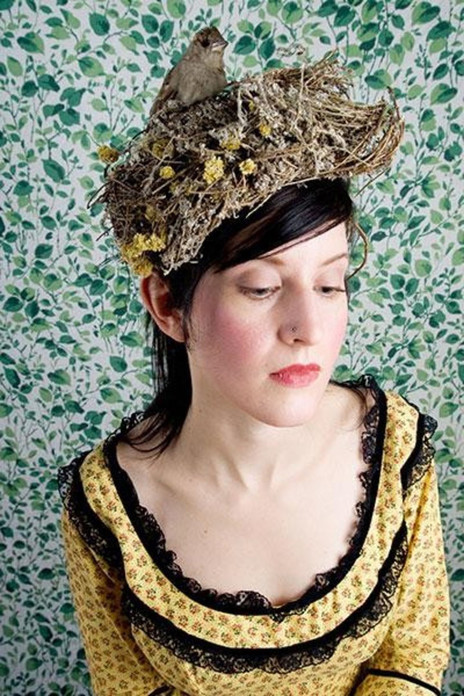
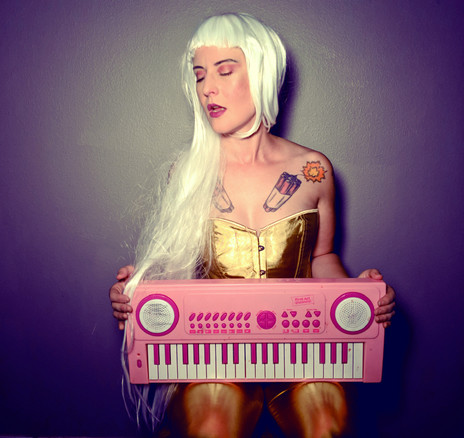
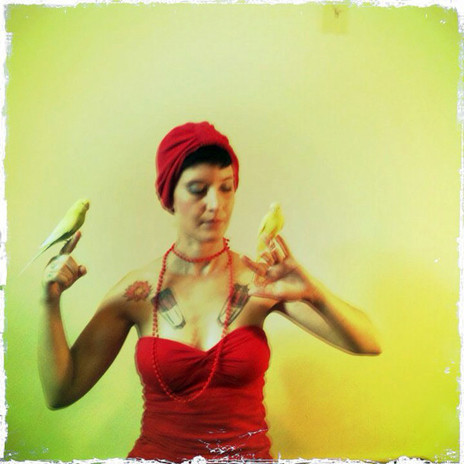
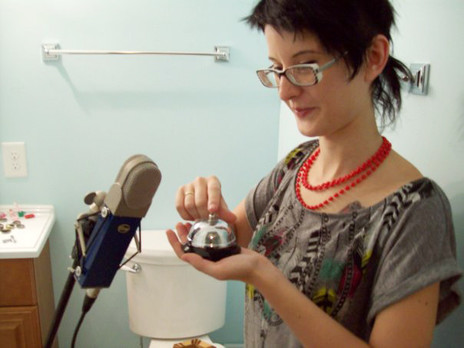
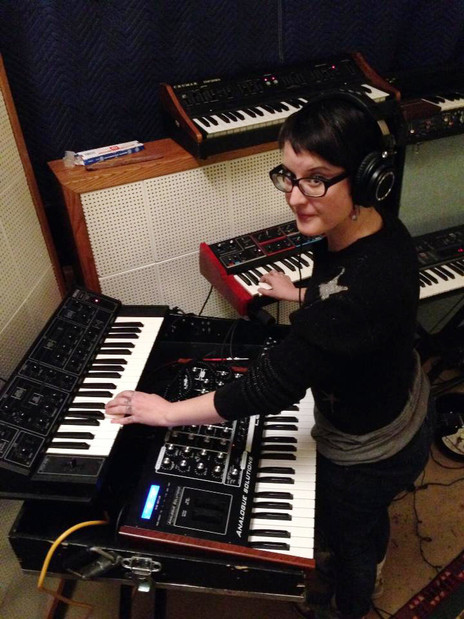
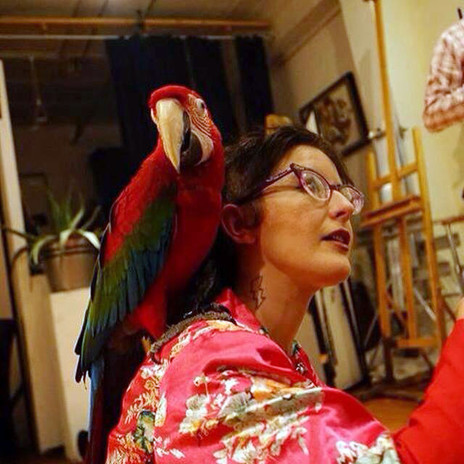
Bird Army Records
Monkey Records
Visit our sister site
NZ On ScreenMade with funding from
NZ On Air



